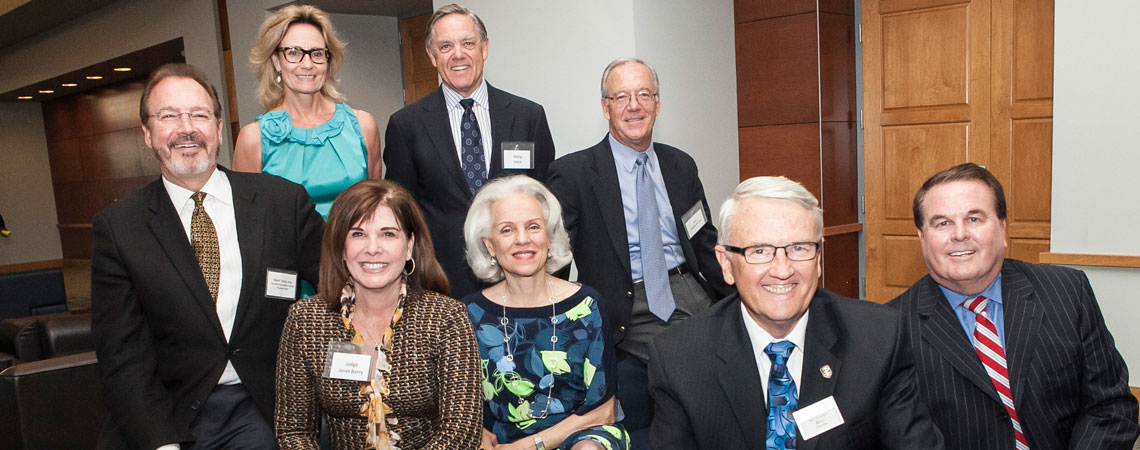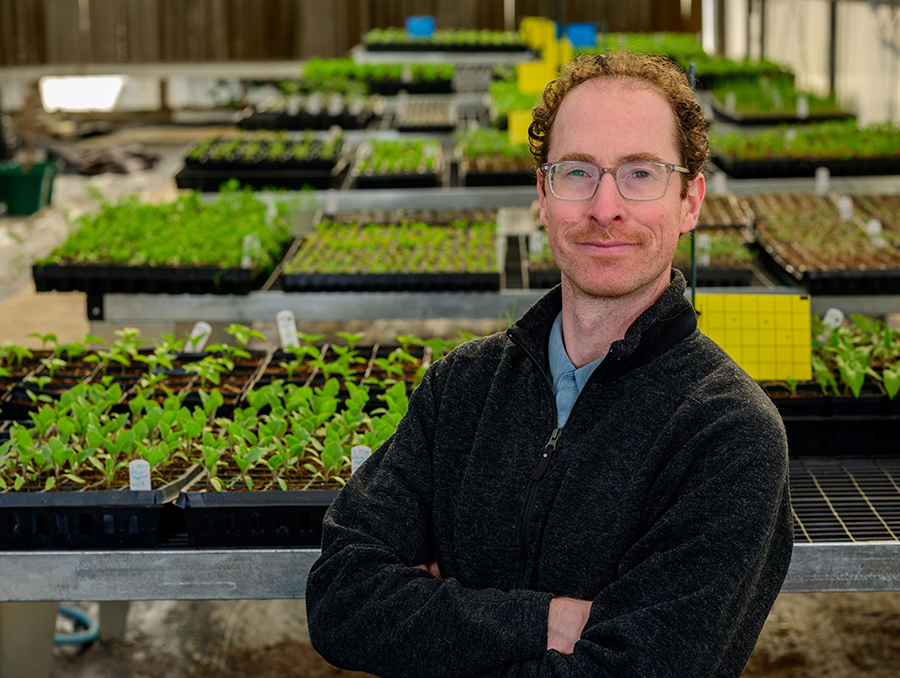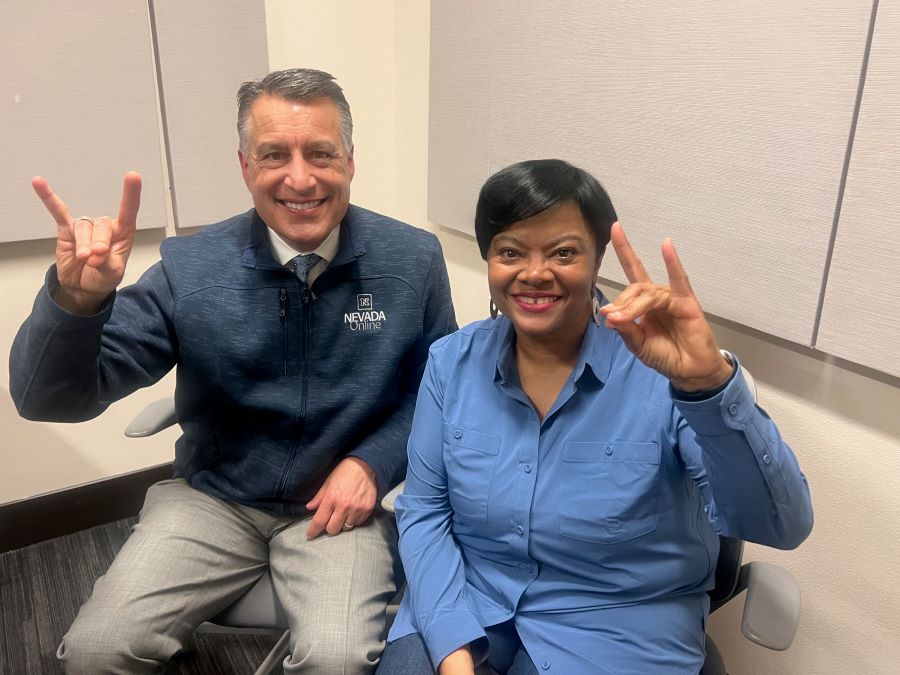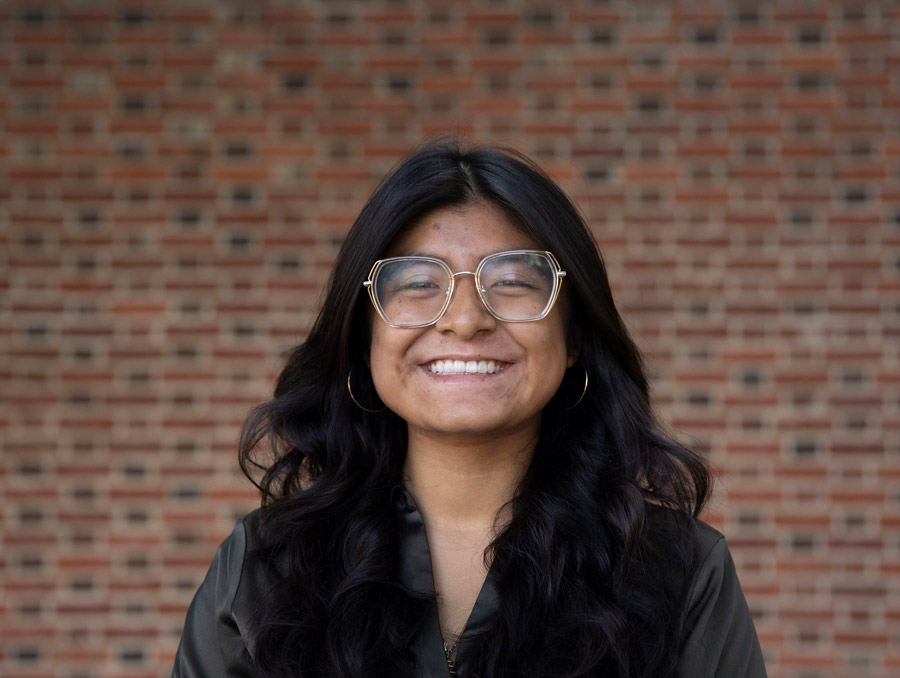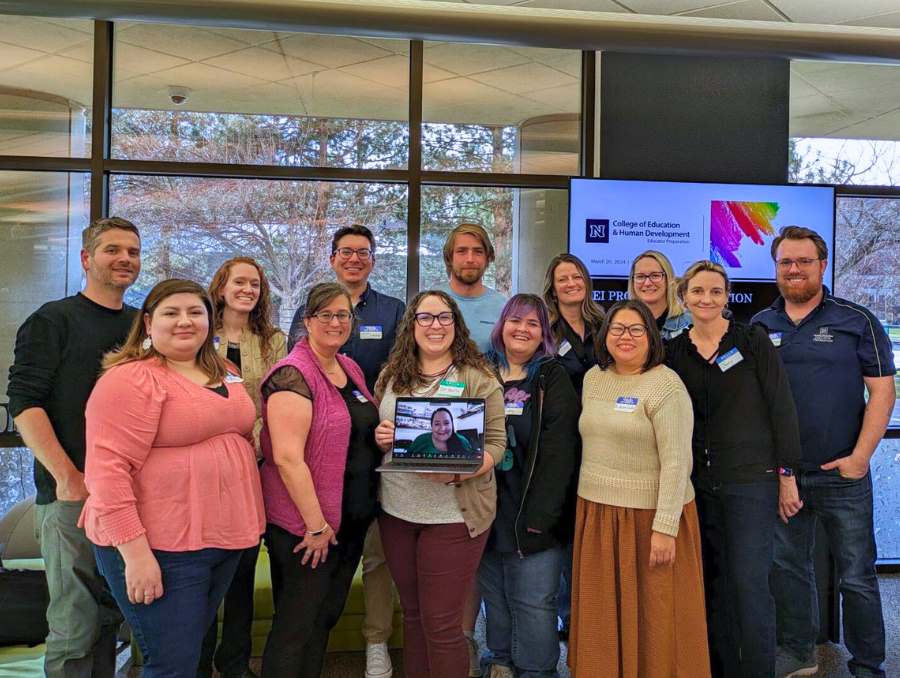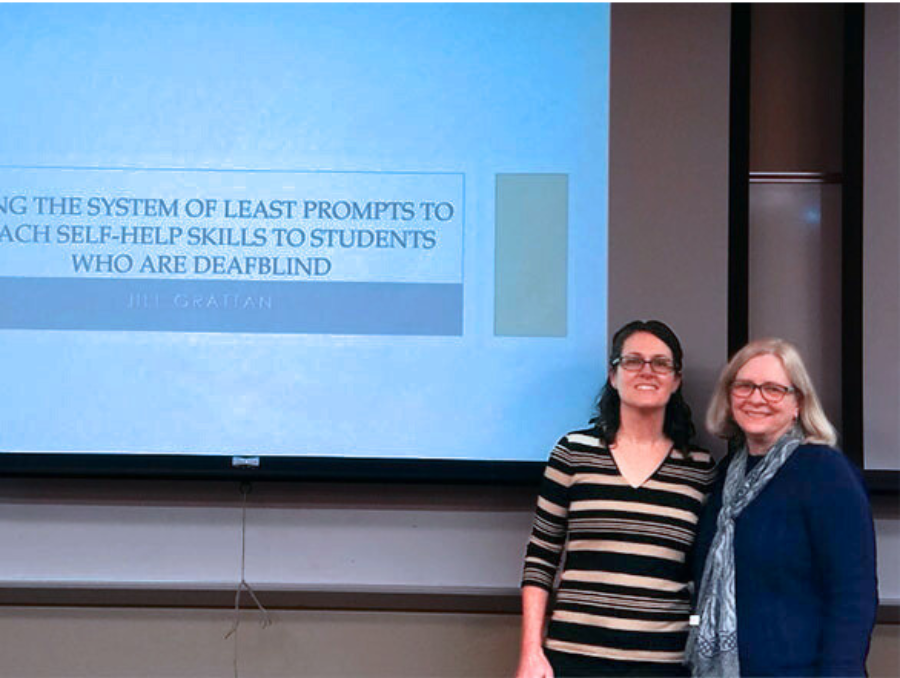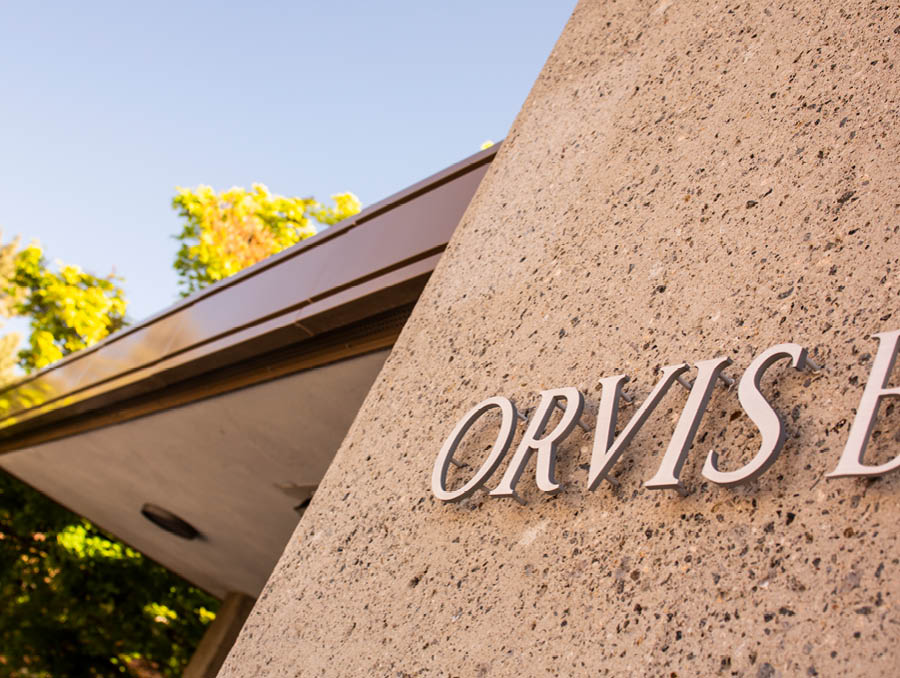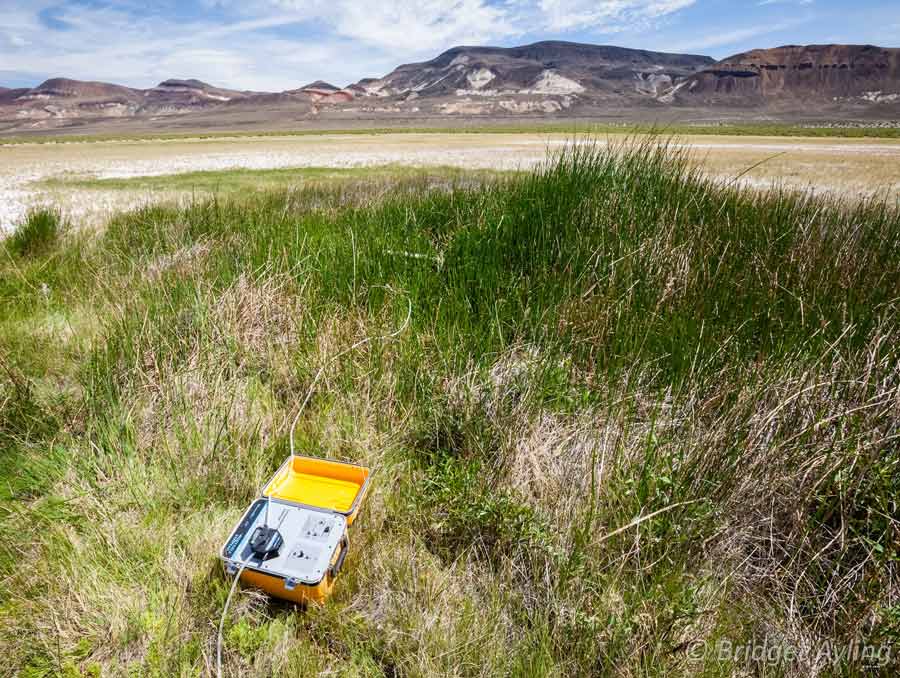Quick quiz: For the better part of 50 years, the epicenter for programs that have led to the education and the improvement of the performance of the judiciary in the United States has run through:
A) The Supreme Court of the United States in Washington, D.C.
B) The Ninth Circuit of Appeals in San Francisco, Calif.
C) The University of Nevada, Reno in Reno, Nev.
If you picked SCOTUS, or the Ninth Circuit, you would be wrong. The University is home to the National Judicial College (NJC), which received funding from the Max C. Fleischmann Foundation for operations and held courses on campus for the first time in 1965 and has been housed on campus continuously since then. Since 1969, the University has also been home to the National Council of Juvenile and Family Court Judges. In 2012 alone, the NCJFCJ trained nearly 12,000 judges, magistrates, commissioners, attorneys and other juvenile and family court-related professionals. The National Judicial College offers an average of 90 courses/programs annually with more than 3,500 judges attending from all 50 states and more than 150 countries and serves more than 4,000 judicial officers annually through 30 to 40 web events each year.
Linking the two entities have been three graduate degree programs offered by the University through its Judicial Studies Program that have provided a formal academic setting for trial judges, administrative law judges, and juvenile and family court judges.
"These two entities are proud of the fact that they're on this campus," says longtime University Sociology Professor Jim Richardson, who has coordinated the shared Judicial Studies degree programs. "They promote our various degrees and degree programs. It's a star in our crown that they are here. And it helps with the prestige and accomplishment of this University.
"(Having the NJC and the National Council) on our campus makes us unique in the country. No other university has something like this."
For 25 years, Richardson has been one of the ties that have helped tether the two organizations to the University. He has served as director of the Judicial Studies Program almost from its inception. An equally important figure was Neal Ferguson, who as dean of Continuing Education was a key leader in the formation of the program, running it until he recruited Richardson to become director in 1988.
The graduate degree program's impact has been profound and impressive: More than 125 judges have received either master's or Ph.D.'s from the joint degree program; more than 60 percent have had their theses published, and cited by state legislatures and in case law; its participants come from more than 40 states.
The program has managed to do all this without many of the resources one would assume would be a given.
"To try to run a program for judges, without a law school, without a fulltime faculty, is a challenge," says Richardson, a professor at the University since 1968. "We have managed it fine over the years. I remember telling my advisory committee at one point, 'From a sociological point of view, this program shouldn't exist.'
"But it does. We have faculty who are scattered over the country (as well as University faculty who teach on letters-of-appointment), we have judges who are our students who are scattered all over the country. But it works. It's a very serious degree program that has done a lot of good. There's no question it's improved judges' lives and judges' performances."
On Sept. 10, the NJC held a 50th anniversary reception, honoring five decades of judicial excellence, in the Joe Crowley Student Union. More than 200 people attended, including Nevada Gov. Brian Sandoval. Other key attendees included NJC founder Ernest Friesen, the college's first dean, the Hon. Laurance Hyde, a member of the college's first class, the Hon. James Richards, as well as William Dressel, the NJC's president, who is retiring after 13 years leading the college. University President Marc Johnson was one of the featured speakers that evening, and Provost and Executive Vice President Kevin Carman was also in attendance.
Dressel, in earlier remarks, noted that the NJC's "gift" to the judiciary has included annual academic offerings of more than 100 courses and programs for judges throughout the country and the world. The NJC's building was constructed next to the old College Education of Building (now Cain Hall) in 1971, and was significantly expanded in 2000 through a 50-50 split in funding provided by the Donald W. Reynolds Foundation and the Nevada State Legislature.
Johnson, in his remarks that evening, noted that "the numbers of the members of the nation's judiciary who have taken courses are simply staggering: more than 100,000 judges who have taken courses over the years ... The National Judicial College has facilitated higher standards in training judges in both the process and the substance of justice. In every way, the NJC has delivered this knowledge in a way that has been engaging and groundbreaking. All in all, you've embodied the spirit and purpose of every aspect of our University's mission."
Mari Kay Bickett, chief executive officer of the National Council of Juvenile and Family Court Judges, has a unique perspective on the role of the NJC and the National Council. In addition to her current position, she also worked as a program attorney and was the first academic dean for the NJC in the late 1980s.
"We're kind of the light under the bushel," says Bickett, who graduated from the University with a degree in business. Her organization's office is located in the Continuing Education Building, across the street from the main campus on Virginia Street. "We have an impact that some people may not realize. Both organizations have had a strong impact on northern Nevada. We have an $18 million (annual) economic impact on Nevada, and the NJC has around an $11 million impact. That's a pretty big deal. For the National Council, we have 26 University graduates who work for us, or about one-third of our staff. We support the University and the University has always been good to us."
The educational modalities offered by the National Council, the NJC and the joint degree programs offered by the University are successful, Bickett says, because of their ability to appeal to the unique sensibilities and learning needs of judges.
"Judges fall into the adult learning model in that they like to direct what they want to know, and they also like to network with each other in a safe environment, to be able to ask questions and yet not waste a lot of time," she says.
An example of the National Council's impact on the national and international juvenile judiciary is the work of Dr. Shawn Marsh, the Council's chief program officer. Research-intensive work by Marsh and others have helped to bridge the gap between, as Marsh puts it, "... judges who are very thirsty for knowledge in a very practical sense who are also very aware of the implications and advantages of understanding psychology and social science in their courtrooms."
The work done by Marsh and his colleagues - he often refers to them as "Road Warriors" for the broad swath of area they cover, traveling across the country and throughout the world - has provided research-driven and site-based observational data and suggestions for best practices in a number of key areas in juvenile courts. The research covers everything from the effectiveness of signage and physical navigation in courts to placing a greater emphasis over the past 30 years on the understanding of the impact domestic violence on families who are involved in the juvenile court system. A great deal of the scholarship, in one form or another, is connected to the University, either through adjunct faculty teaching positions in doctoral programs, or graduate research assistantships, Marsh said.
"The depth, scope and breadth of our work, is just amazing," Marsh said.
It's work that all who are involved love, and feel is important.
"This is a group that, like social work, really cares about what they do," Bickett says. "They're invested in the success of what they do. It's not glitzy or glamorous, but it is highly important work."
Richardson says he's often surprised by the level of commitment judges involved with his joint degree programs display. It was this type of commitment that led to the creation of a Ph.D. component more than a dozen years ago. One of the program's participants, a judge named Stephanie Domitrovich from Erie County, Pennsylvania, organized a petition to expand the program.
"She took the bit between her teeth and she and another judge, unbeknownst to me, walked over to (then-University President) Joe Crowley's office to make the case for a Ph.D. program," Richardson says, smiling at the memory. The effort worked; the Board of Regents within a few months approved the Ph.D. component, and the E.L. Cord Foundation agreed to provide $300,000 for start-up funding for the Ph.D. program. Judge Domitrovich went on to become the first graduate of the program with a Ph.D. in Judicial Studies.
"Everyone has hitched up their britches and done some special work," Richardson adds. "We've managed to do something very different - something that is unique for a university. We have two organizations that do an unbelievable amount of judicial education. They value our degree programs, and we're glad to be associated with them. These are organizations that are known around the world for what they do. This only helps our reach as a university."
Equally impressive, Richardson notes, is the strong allegiance all those involved feel for the various degree programs, the NJC and the National Council.
"We are very proud that many judges going through the degree program get involved themselves in judicial education in their home states, and some come back and teach for the NJC and NJCFCJ," Richardson says.
